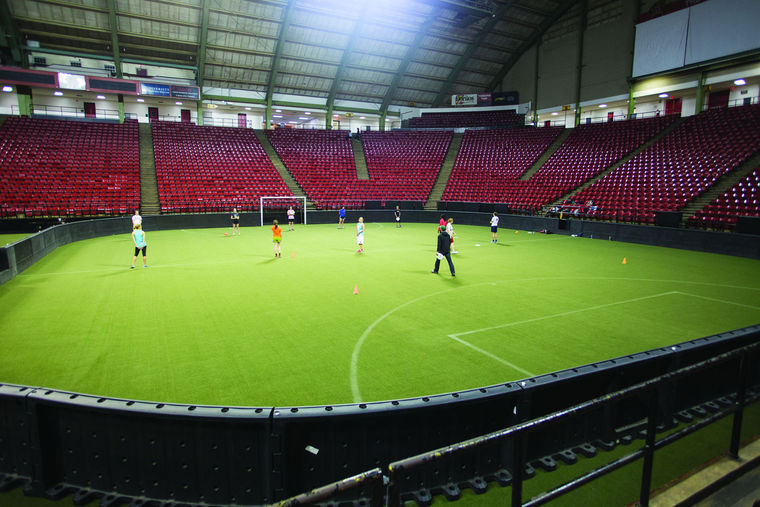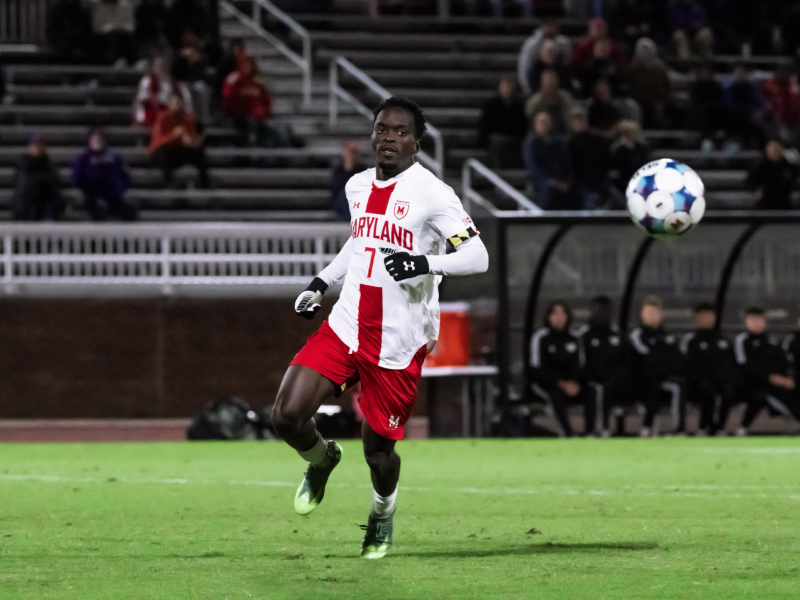
Teams such as the Ultimate Frisbee Club, above, that rely on Cole Field House for practice space must start relocating due to impending renovations.
With pre-demolition work in Cole Field House slated to begin in the coming weeks, organizations and departments housed in the building will begin relocating to other areas both on and off the University of Maryland campus, officials said.
The demolition will affect the north and west sides of the building and will encompass almost 90,000 square feet, said Bill Olen, this university’s capital projects director. The university will hold a town hall meeting “sometime this month” to review logistics, Olen said.
“There have been a lot of rumors going around that the whole building will be closed,” Olen said. “But it will not be closed in its entirety, and all of the [affected] departments will end up in permanent locations by the spring.”
READ MORE: DOTS to begin closing parking lots in December for Cole renovation
Departments housed in the building include the Army and Air Force Reserve Officers’ Training Corps programs, which will move to Reckord Armory; the Center for Leadership & Organizational Change, which will relocate to the newly named Seneca Building on Route 1; and the Veteran Center and the Campus Bike Shop, which will both move to other areas within Cole. New locations for the University Recreation & Wellness cycling studio and offices belonging to the education college and the Asian-American studies department are still being finalized, Olen said.
The many intramural athletic teams that use the building will be forced to practice elsewhere, as most of the construction within the building will occur inside the bowl of the arena, Olen said.
The university plans to begin prepping the building for demolition over the next month or two, and construction on the planned expansion will begin in the spring, Olen said.
“The numbers are still in review … and our architects are still in the initial design phase,” Olen said. “Now, they’re just beginning to share images, and we will start on a very aggressive path by the end of October.”
READ MORE: Maryland gives UMD more than $80 million in FY16 for campus projects
Many faculty and staff who use the building and said the lack of communication until this point has caused anxiety and confusion.
“As far as we know, they’re still working on the plan,” said junior economics and international business major Lena Malorodova, one of the facility’s supervisors. “Our biggest concern was that we weren’t going to have jobs when the building closed.”
Starting this month, Olen said, officials will begin meeting one-on-one with all occupants of the building to alleviate some of their concerns.
“We’ll go over what they should expect and let them know their spaces are protected and safe while construction is going on,” Olen said. “We will be able to give up more details soon.”
A lack of concrete details also has frustrated many College Park locals, who said they use the space to exercise.
“We heard that the building will be closed sometime next year, but we don’t know if that means January or next fall or what,” said Quiana Keeve, a 2001 university alumna and Prince George’s County Police officer.
Keeve said many local officers train inside the field house by running laps or climbing the stairs and do not look forward to the impending renovations.
“I’ll be sad to see it go,” Keeve said. “We’ll have to run somewhere outside in the elements.”
Despite any inconveniences associated with the renovation processes, Olen said, the new building’s capabilities will expand dramatically.
“The potential for research and helping people with traumatic head injuries … is incredible,” Olen said. “The research and academic side of Cole is just unbelievable.”



